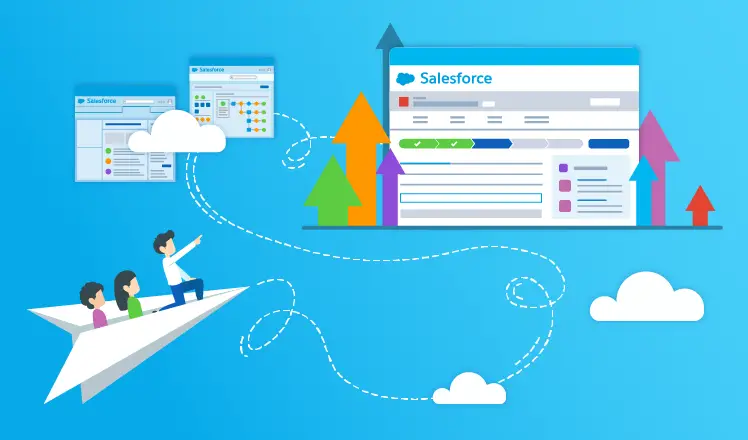In the rapidly evolving digital economy of today, companies are always looking for methods to streamline their processes and spur expansion. Leading customer relationship management (CRM) platform Salesforce has become an indispensable tool for companies looking to improve customer experiences, streamline operations, and eventually see a return on investment (ROI). Effective use of Salesforce necessitates a planned strategy backed by reliable performance indicators. Here, we explore important metrics that can help companies get the most out of their Salesforce investment.
User Adoption Rate
Salesforce's effectiveness hinges on user adoption. Tracking the adoption rate provides insights into how well your team is embracing the platform's capabilities. Low adoption rates may indicate the need for additional training or adjustments to the platform to better align with user needs.
Lead Conversion Rate
Measure the percentage of leads that are successfully converted into paying customers through Salesforce. Analyzing lead conversion rates can highlight areas for improvement in sales and marketing strategies, as well as the effectiveness of Salesforce in nurturing leads through the sales pipeline.
Customer Retention Rate
Salesforce enables businesses to build stronger relationships with customers through personalized interactions and timely follow-ups. Monitoring the customer retention rate within Salesforce helps gauge customer satisfaction and loyalty, ultimately impacting long-term revenue streams.
Time to Resolution
Utilize Salesforce's service management capabilities to track the time it takes to resolve customer issues or inquiries. A shorter time to resolution signifies efficient customer service processes, leading to higher customer satisfaction levels and improved retention rates.
Pipeline Velocity
Pipeline velocity measures the speed at which opportunities move through the sales pipeline. By analyzing this metric within Salesforce, businesses can identify bottlenecks, optimize sales processes, and accelerate revenue generation.
Customer Lifetime Value (CLV)
Salesforce provides valuable insights into customer behavior and purchasing patterns, allowing businesses to calculate the CLV. Understanding the CLV helps prioritize high-value customers, tailor marketing efforts, and allocate resources effectively for maximum ROI.
Marketing Campaign ROI
Evaluate the effectiveness of marketing campaigns by tracking ROI within Salesforce. By attributing leads and opportunities to specific campaigns, businesses can assess which initiatives yield the highest returns and refine their marketing strategies accordingly.
Sales Performance
Salesforce offers comprehensive sales analytics tools to monitor individual and team performance metrics such as win rates, quota attainment, and average deal size. Analyzing sales performance data enables sales leaders to identify top performers, address skill gaps, and optimize sales strategies for improved results.
Data Quality
Maintaining data integrity is crucial for accurate reporting and decision-making. Salesforce provides tools for data cleansing, deduplication, and validation to ensure the quality and reliability of your CRM data, ultimately enhancing the effectiveness of sales and marketing efforts.
Integration Efficiency
Evaluate the efficiency of integrations between Salesforce and other business systems or applications. Seamless integration streamlines data flows, eliminates manual processes, and provides a unified view of customer information, enhancing productivity and collaboration across departments.
Cost per Acquisition (CPA)
Calculate the cost per acquisition of customers acquired through Salesforce-driven initiatives. Comparing the CPA against customer lifetime value helps determine the profitability of acquisition channels and optimize marketing spend for maximum ROI.
Return on Experience (ROX)
As highlighted by Salesforce, ROX measures the impact of technology investments on overall user experience and business outcomes. By focusing on enhancing user experiences through Salesforce implementations, businesses can drive greater efficiency, satisfaction, and ultimately, ROI.
In summary, attaining return on investment (ROI) with Salesforce necessitates a calculated strategy backed by solid metrics customized to your company's goals. Through the monitoring and evaluation of these crucial indicators, companies can fully utilize Salesforce, stimulate expansion, and maintain an advantage in the current market environment. Utilizing Salesforce consulting companies‘ experience can also guarantee optimal efficiency and streamline the implementation process. Renowned for their proficiency in Salesforce customization, support, and training, SP Tech is one of the top Salesforce consultants. Their all-inclusive services facilitate businesses' understanding and efficient utilization of Salesforce's power.






